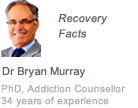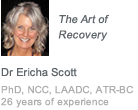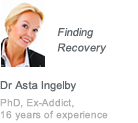PCP Addiction
PCP addiction began almost as soon as the drug was first created. PCP is the street name – just one of many – for 1-(1-phenylcyclohexyl)piperidine or Phencyclidine. The drug started life as a surgical anesthetic being patented in the US in 1953, but it was shelved very quickly because of the side-effects that included hallucinations and aggressive paranoid breaks. PCP was later marketed as an animal anesthetic but again discontinued shortly after due to the side effects that were even seen in animals.
PCP – legal status and origins
PCP addiction became a major problem in the mid 1960’s and the addiction peaked in 1978/79. It has been overtaken by crack cocaine and methamphetamine as a recreational drug but is still being produced in kitchen laboratories as the synthesis is relatively easy and cheap.
PCP was first patented under the brand name Sernyl by the Parke-Davis pharmaceutical company and marketed as a surgical anesthetic. PCP works as an NDMA receptor antagonist and works as a dissociative anesthetic, literally distracting the pain receptors in the brain, rather than as a narcotic, It was developed precisely because dangers of death from narcosis and narcotic anesthesia were well known. The drug very quickly showed some serious side-effects due to its psychoactive properties and also due to the long period – up to 8 days – that the drug remains in the human body during which there can be reactions under unpredicted stimuli.
PCP was first listed in the United States as a Schedule III drug in the early 1960s meaning it was legal for use in many medical settings. It was regraded as a Schedule II drug in 1978 indicating that it was believed to be abused regularly and contained dangerous hallucinogenic properties. Penalties for a first offence of either possessing or selling PCP can range from 5 to 40 years in prison and a fine of up to $4 million.
The UK and Canada followed the American example, and in the UK PCP is classified as a Class A drug putting it on a par with heroin and LSD; simple possession of the drug – without proven intent to sell – can carry penalties in Britain of up to seven years imprisonment, a heavy fine and confiscation of property.
PCP addiction: usage trends and effects
PCP was originally taken as a pill but this was a slow method of ingestion and was found by addicts to be too unpredictable in effect. It was later ‘snorted’ as a powder to get a more rapid uptake of the drug – hence the term ‘Angel Dust’ – and is also available in a liquid form where it is either smoked through having a cigarette dipped in the drug or by being sprinkled on a leaf of some form and then smoked. Smoking PCP has a tendency to build a strong physical dependency very quickly.
Most users actually find their initial experience of the drug highly unsatisfactory, mainly due to the unpredictability of its effects and the long period of recuperation from a PCP high, but for those who revisit the drug, PCP addiction – both physical and mental – will begin rapidly. Those who take it on a regular basis – the nickname for a regular PCP addict is a ‘Duster’ – often desire the physical and emotional numbness that PCP can bring but also crave its strong hallucinogenic qualities.
PCP addicts will generally use the drug on a ‘spree’, taking large amounts continually over a period of days and then collapsing at the end of the spree exhausted, depressed and physically very sick. PCP addicts will experience trance-like euphoria and appear to be mentally detached from the environment around them – they might experience an ‘out of body’ like feeling where they believe that they are observing the scene from a position away from their body. Perhaps this also contributes to the street slang of angel dust for PCP. Other common side-effects for PCP addicts are:
- Addicts tend to feel no pain while they are in the grip of the drug and many occasions have been reported by police where they have found it almost impossible to halt the approach of a ‘Duster’ even when they are hit with a nightstick, fists or even shot
- PCP addiction causes the addicts to feel both paranoid and extremely violent
- PCP addicts will often feel invulnerable and have great strength while they are high
- Muscle contractions and cramps leading to strange postures and even bone fractures due to constriction are not uncommon
- Breathing will be shallow and rapid
- An elevated blood pressure and a high pulse rate are usual
- Lack of appetite and even physical rejection of food is common
- A feeling of impending paranoia and anxiousness
- Depression – most normally experienced after the ‘hit’ has worn off and leading to an Intense craving for another hit of the drug
Long term the severest side-effects are:
- Profound depression between highs and when their use of the drug is stopped
- Extensive memory loss is common in recovered addicts
- Bone and long-term muscle damage is common and may be irreversible in some cases
- Kidney damage is a frequent effect of PCP addiction
- Hypothermia has been noted in some cases of long term PCP addiction along with a frostbite like effect on the extremities
Profile of PCP users and dealers
PCP is a cheap drug to manufacture and unpleasant in its’ after effects. It tends to be sold and used by addicts on the fringes of society and on the lower levels of the socio-economic strata.
PCP is a ‘streak’ drug where addicts will use it in concentrated bursts and then not again for days. But the addiction is physical so once the debilitating effects of a ‘Spree’ are lessened the addict will need to take the drug again to stave off the pains of withdrawal.
The drug is very popular with dealers, it is easy to make, cheap to produce and highly addictive, and it is often touted around under different names to reinvigorate sales. Many users become addicts through taking it unknowingly – they thought they were ingesting a less malign drug and once they are hooked they find their lives gradually being taken over by the need for the drug.
Recognizing PCP addicts and PCP addiction
The obvious physical symptoms of PCP addiction that most lay people can easily spot include:
- Dilated pupils
- Jerky eye movements
- Rigid muscles – or muscles in spasm
- Drooling
- Poor physical co-ordination
- Insensitivity to pain
- Staggering gait
- Rapid heartbeat but drowsy look
The behavioral markers of PCP addiction include:
- Anxiety and paranoia
- Fear or even terror without any triggers
- Violent behavior with little or no cause
- Mood swings
- Poor distance perception
- Auditory hallucinations
Treating PCP addiction
As part of the effect of withdrawal from PCP addiction is loss of memory and identity it is crucial that a professional, maybe a counselor, works with the patient to rediscover their past and personality. Identifying important stages in their past can help the addict focus on a future without addiction being king. That loss of memory can be permanent if the addict has had long term addiction and abuse, although hypnosis can help sometimes.
Because their addiction may well have been accidental PCP addicts will often suffer a sense of injustice. Their sense of self-worth will often need to be rebuilt as well as the breaking down of the falsely confident alter-ego that PCP addiction will often create.
Physical withdrawal and detox from PCP addiction can cause aggressive, irritable paranoia in the withdrawing addict, they will often become violent and a potential danger to themselves and those around them. A calm and placid environment where their many physical and emotional issues can be addressed is helpful, as is an holistic approach – PCP addicts often respond better to a quiet and guiding voice rather than substitute drugs and harsh regimens. Yoga and chanting, meditation, gentle exercise and numerous other therapies designed to reach the fractured and hurting mind of a PCP addict are supportive and useful, both in the initial stages of detox and the life-long recovery that follows.












